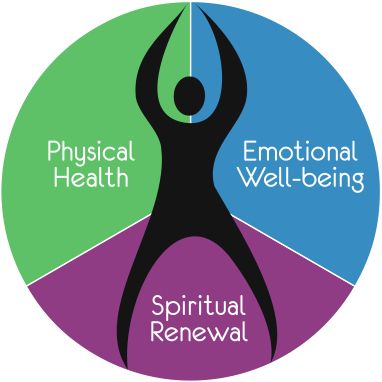
Pain is a complex experience that affects millions of individuals worldwide. It can be acute or chronic, and its intensity can range from mild discomfort to debilitating agony. Traditional pain management often involves the use of medication, which may have adverse side effects and limited efficacy in the long run. As a result, many individuals are seeking holistic approaches to pain management that address the root causes of pain and promote overall well-being.
Understanding Holistic Pain Management
Holistic pain management recognizes that pain is not solely a physical experience but also involves emotional, psychological, and spiritual aspects. It takes into account the whole person and seeks to address the underlying factors contributing to pain. Instead of focusing merely on symptom relief, holistic approaches aim to restore balance and harmony in the body, mind, and spirit.
Nutrition and Diet
Proper nutrition and diet play a crucial role in managing pain. Certain foods have anti-inflammatory properties and can help alleviate pain naturally. Incorporating a variety of fruits, vegetables, whole grains, and omega-3 fatty acids into your diet can reduce inflammation and improve overall health. Conversely, processed foods, refined sugars, and unhealthy fats can exacerbate inflammation and chronic pain. Consulting with a nutritionist or healthcare provider can provide guidance on developing an individualized pain management diet.
Physical Activity and Exercise
Regular physical activity and exercise are essential components of holistic pain management. Engaging in low-impact exercises, such as yoga, tai chi, or swimming, can help improve flexibility, strengthen muscles, and reduce pain. Physical activity also stimulates the production of endorphins, which are natural painkillers. An exercise routine tailored to your specific condition and limitations can contribute to both pain management and overall well-being.
Stress Reduction Techniques
Stress is known to exacerbate pain and negatively impact overall health. Therefore, incorporating stress reduction techniques into a holistic pain management plan is vital. Techniques such as deep breathing exercises, meditation, mindfulness, and progressive muscle relaxation can help calm the mind and reduce pain perception. Additionally, engaging in activities that bring joy and promote relaxation, such as hobbies, spending time in nature, or listening to music, can provide much-needed relief from pain and stress.
Alternative Therapies
Many individuals find relief from pain through alternative therapies that complement traditional medical treatments. These therapies include acupuncture, chiropractic care, massage therapy, and herbal medicine. Acupuncture, for example, involves the placement of thin needles at specific points on the body to stimulate the flow of energy and promote pain relief. Chiropractic care focuses on aligning the spine and musculoskeletal system, which can alleviate pain and improve overall function. Massage therapy can help relax tense muscles, release endorphins, and improve circulation, reducing pain and promoting healing.
Benefits of Holistic Pain Management
Choosing holistic approaches to pain management can offer several benefits over traditional methods:
Reduced Reliance on Medication
One significant advantage of holistic pain management is a reduced reliance on medication. While medication has its place in pain management, it often treats symptoms rather than addressing the underlying causes. Holistic approaches aim to minimize the need for medication by targeting the root causes of pain and promoting long-term healing.
Improved Overall Well-being
By considering the interconnectedness of the body, mind, and spirit, holistic pain management promotes overall well-being. It focuses on lifestyle changes, including proper nutrition, regular exercise, and stress reduction techniques, which not only help manage pain but also enhance overall health and quality of life.
Individualized Approach
Holistic pain management recognizes that each person is unique and requires an individualized approach. It takes into account the specific needs, symptoms, and lifestyle of the individual, offering tailored solutions that address their unique pain experience.
Side Effect-Free Options
Unlike certain medications that may have side effects or interactions, holistic pain management approaches often have minimal or no side effects. Techniques such as nutrition, exercise, and stress reduction are generally safe and can be incorporated into a person’s daily routine without adverse effects.
Conclusion
Holistic approaches to pain management provide a comprehensive and personalized alternative to traditional methods. By acknowledging the mind-body-spirit connection, these approaches address the underlying causes of pain and promote overall well-being. Incorporating nutrition and diet, physical activity, stress reduction techniques, and alternative therapies into a holistic pain management plan can lead to significant improvements in pain relief and overall quality of life.

